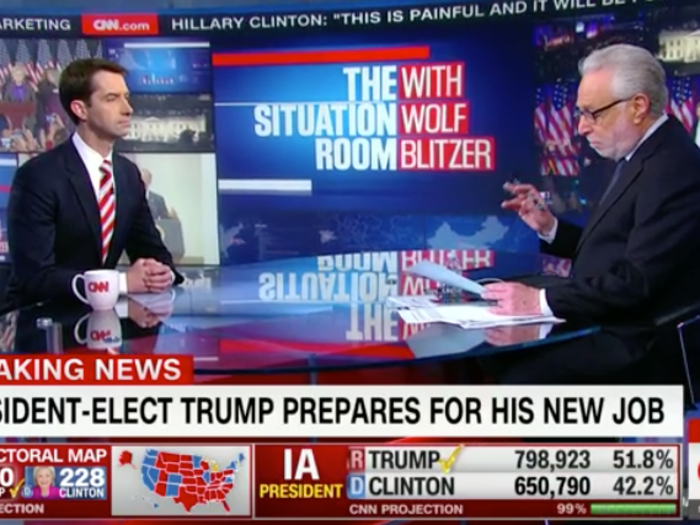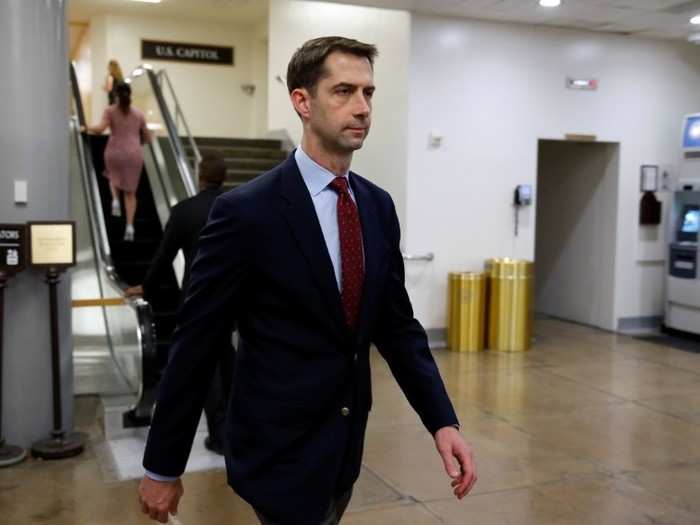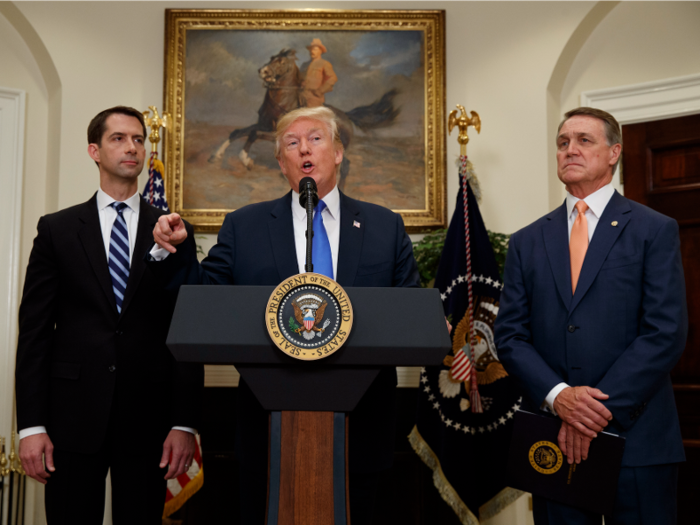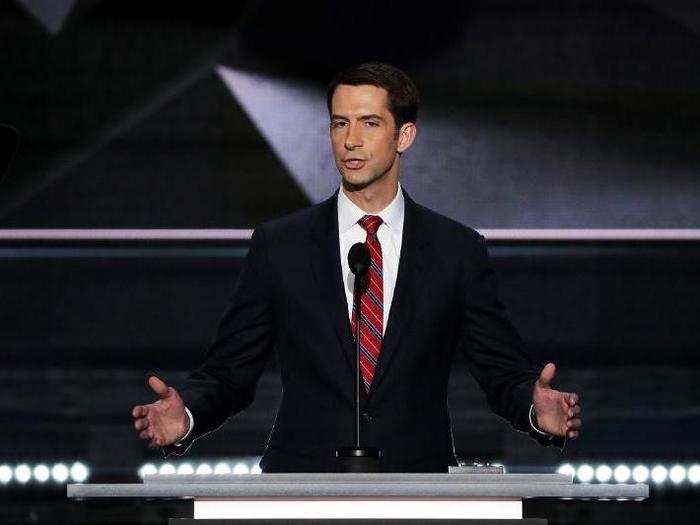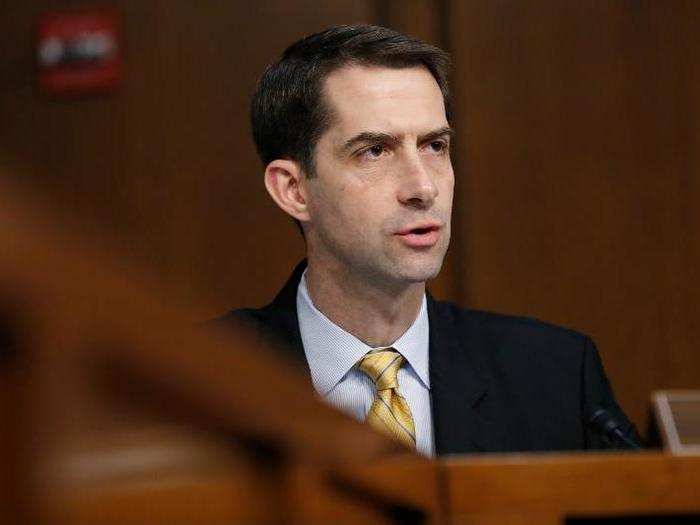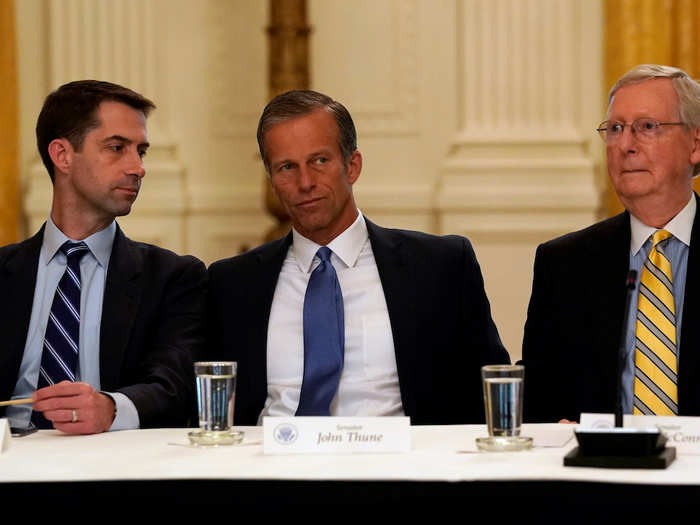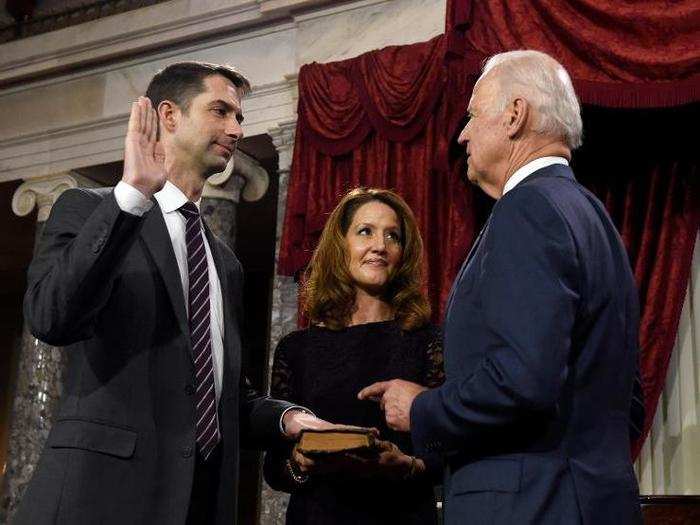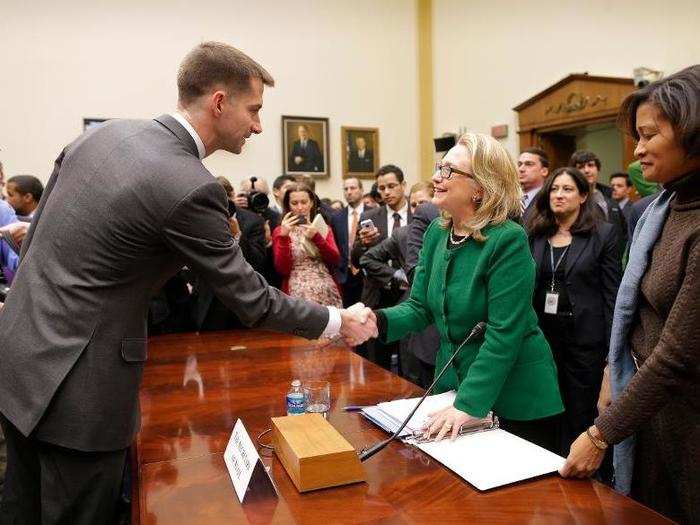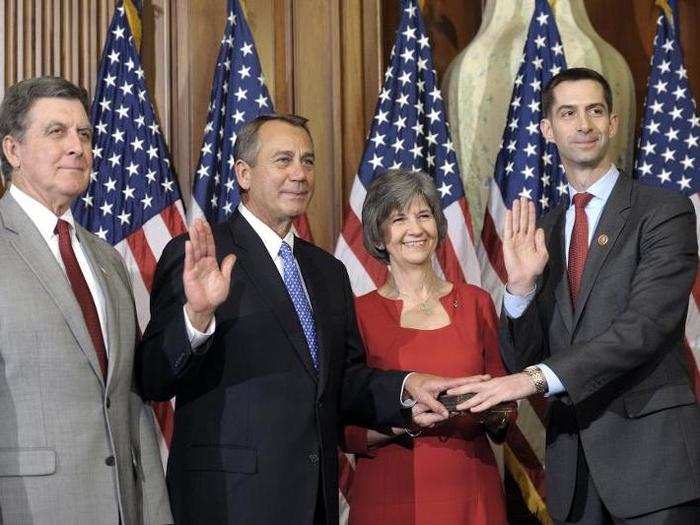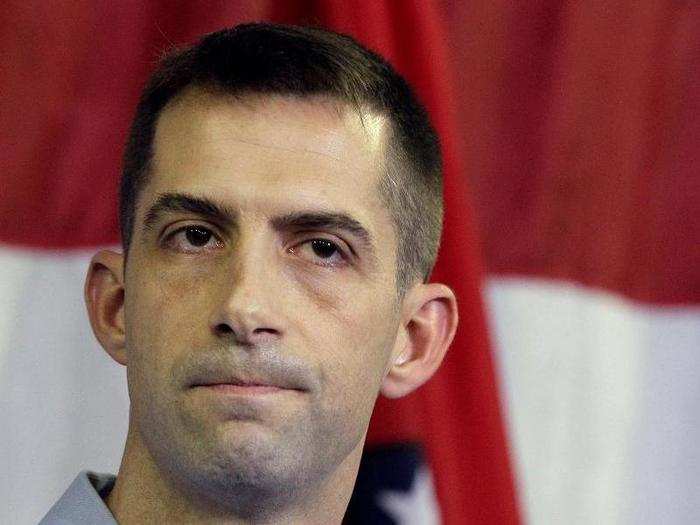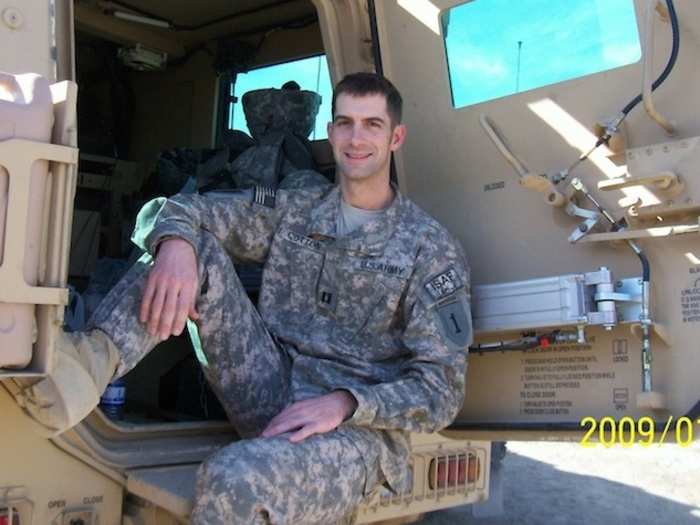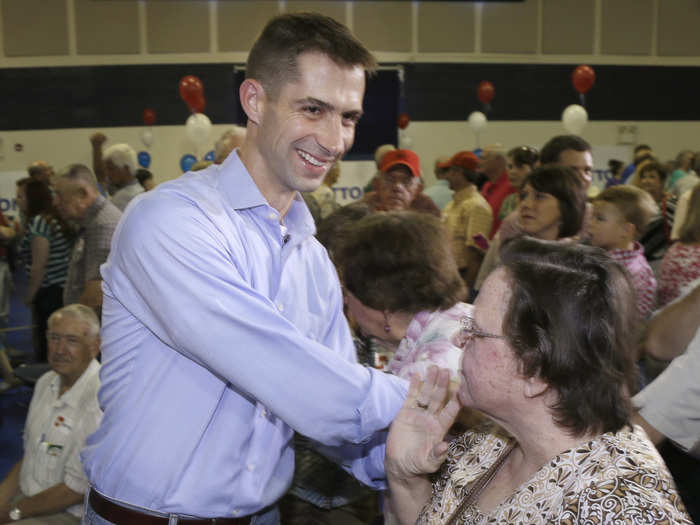One of the positions Cotton shares with Trump is the use of waterboarding for interrogation. After the 2016 presidential election, Cotton said he doesn't believe it qualifies as torture. Former CIA veterans told Business Insider that Cotton's views on torture concern them.
In June, Cotton was one of the 13 senators who drafted the Republican bill to repeal the Affordable Care Act behind closed doors. That effort failed in July.
The letter was an unprecedented move by domestic politicians to undermine international negotiations. Former Major General Paul D. Eaton called it "mutinous." Regardless, it only further cemented Cotton's place at the helm of the Senate's most conservative wing.
In 2015, Cotton made international headlines by penning a letter to the leadership of Iran urging it not to enter into a nuclear deal with the Obama administration. Senate Republicans applauded the move, and almost all of them signed their names to it.
In 2015, Cotton became the junior senator from Arkansas, defeating Mark Pryor, a Democrat. Former Republican presidential nominee Mitt Romney and Sen. Marco Rubio of Florida both endorsed him. To this day, he's the youngest member of the Senate.
In one fiery floor debate on a bill that would allow some undocumented immigrants to achieve legal status, Cotton voiced the views of the most conservative wing of the Republican Party and convinced the House to table the bill.
In 2012, Cotton ran to represent Arkansas's 4th district in the House Representatives, which he served from 2013-15. Quickly making a name for himself as a conservative firebrand, he appealed to both the Republican leadership and grassroots movements like the Tea Party.
In 2006, Cotton wrote a letter to The New York Times from Baghdad accusing the paper of violating the espionage act by detailing a US program that tracked terrorist financing. The Times didn't publish the letter, but it went viral in the conservative blogosphere.
After finishing graduate school and working in law, Cotton enlisted in the US Army as an infantryman in 2005, serving tours in Afghanistan and as a member of the storied 101st Airborne in Iraq. Cotton wrote that he was motivated to join the armed forces after 9/11.
Tom Cotton was born in Dardanelle, Arkansas in 1977. He graduated from Harvard University in only three short years, where he wrote a 92-page thesis on the Federalist papers, and worked at the prestigious Harvard Crimson.

